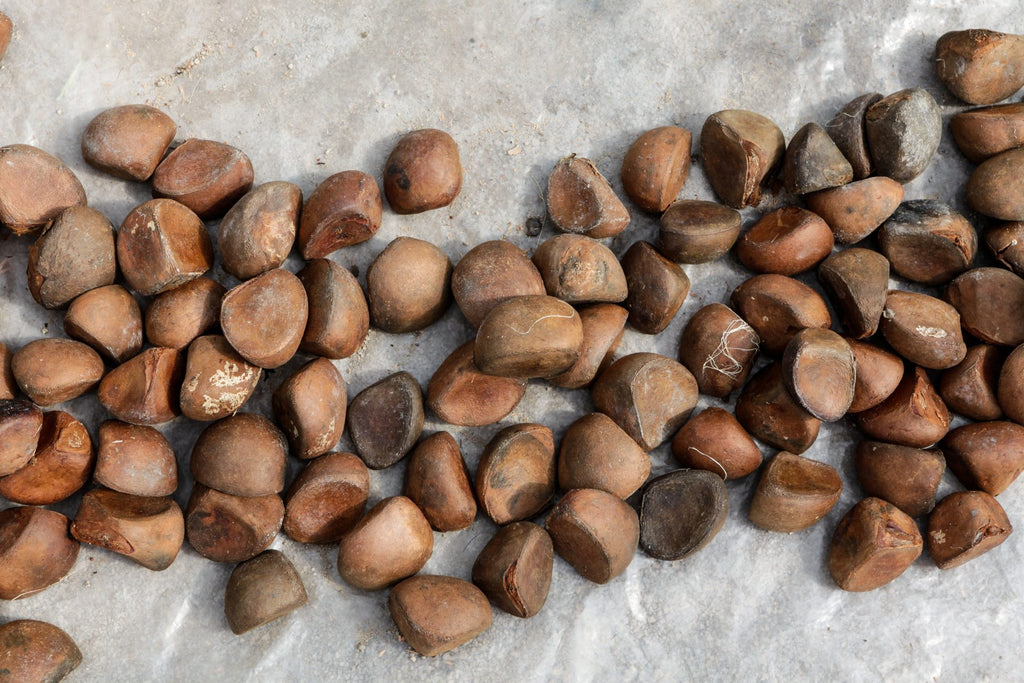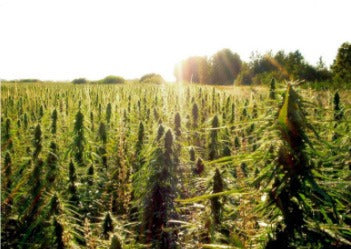What’s the Difference Between Copaiba and CBD?

The world of health and wellness is ever-evolving. We’re always coming across newly discovered items that can transform someone’s lifestyle. Last year, that “it” product was CBD oil. Since entering the public eye, CBD oil has earned its valued reputation. Now, there’s a new kid on the block being compared to CBD–copaiba oil. A lot of the potential benefits seem to mirror one another. So, what’s the difference between the two and is one better than the other? Let’s discuss!
What Is Copaiba?
Let’s begin with the one you’re probably less familiar with. Copaiba oil is derived from the bark of the Copaiba tree. The Copaiba tree is native to the Amazon jungle. There are over 70 species of this evergreen plant.
Early South Americans used copaiba oil for helping:
- Wound care
- Bacterial infection
- GI problems
- Respiratory issues
- Reproductive organs
Many parts of the tree were used for numerous purposes. The leaves are edible so that they can provide nutrient-dense phytochemicals to the system. Its resin has been used to create everything from liquor to perfumes. However, it’s most known for its oil.
What Is Copaiba Oil?
Copaiba oil resides deep within the bark of the tree. Inside is a balsam resin that contains several beneficial terpenes and flavonoids that can help support a healthy lifestyle.
Cultivators of copaiba will create an incision in the bark. They will then place a pipe in the hole to extract out the balsam resin. From there, the resin is steam distilled.
Steam distillation causes many of the compounds that are useless to humans (or alter the flavor or scent of the oil) to dissipate. What’s left is a high concentration of copaiba oil.
How Is CBD Oil Different From Copaiba Oil?
Just because they’re oil, doesn’t mean they’re alike. Heck, CBD oil is nothing like hemp seed oil and they come from the same plant! How you use CBD oil is completely different than copaiba oil.
Broad spectrum CBD oil is created from the whole hemp plant using CO2 extraction. This process allows us to maintain the integrity of phytochemicals, including cannabinoids, found in the hemp extract. Afterward, the beneficial molecules are separated from plant matter and used in CBD products.
During our process, we use breakthrough nanoemulsion technology to make the smallest cannabinoid particles on the market. That allows us to add more CBD to the product and also improves the bioavailability of the cannabinoids. Check out our line of Joy Organics’ CBD Softgels to get the most potent CBD available.
How To Use CBD Oil
CBD oil is more versatile than copaiba oil because it’s used in a wide variety of products. You can encapsulate the oil and sell it as a softgel. Another option is to place the cannabinoids into a thicker oil (like MCT oil or extra virgin olive oil) to make a tincture. Then, there’s CBD cream. The possibilities are endless!
As you can see, there are many ways to use CBD oil, and the hemp-based manufacturers have jumped all over these opportunities. The demand for copaiba oil is not as vocal as the CBD movement. Therefore, the uses of copaiba oil are limited. However, the way you use it is entirely different than CBD oil.
How To Use Copaiba Oil
Copaiba oil is an essential oil. Therefore, you can add it to a diffuser and integrate it into the atmosphere throughout the day. Otherwise, you can inhale copaiba oil straight from the bottle.
This essential oil has a woodsy scent. It pairs nicely with other fall-like aromas, such as cinnamon, balsam fir and orange.
Similarities Between CBD Oil And Copaiba Oil
While we’re harping on the differences between CBD oil and copaiba oil, there are some similarities when using the two. They both are an excellent addition to DIY skincare routines.
There are many ready-made CBD cosmetic products, including Joy Organics’ CBD Salve. However, you can add CBD oil tinctures to many thicker oils to make your own lotion blends. For instance, Joy Organics’ Summer Lemon CBD Tinctures mixes great with honey and coconut oil to make an energizing face mask.
You can also use copaiba oil in your DIY cosmetics. Its piny scent pairs nicely with eucalyptus essential oil and sweet almond oil to make a massage oil for cough and cold season. However, how CBD oil and copaiba oil interacts with the system is a little different. Let’s discuss this.
Precautions Using CBD Oil vs. Copaiba Oil
Copaiba oil is highly concentrated. Many essential oils are too abrasive for people’s skin, especially those who have sensitive skin. So, you might have an adverse reaction if you come in direct contact with copaiba oil.
With that said, there are many people who can use copaiba oil without causing burning or red skin. Those without allergies can apply copaiba oil to a cotton ball and use it in targeted areas for certain skin problems. Otherwise, you can add this essential oil to a thicker lubricant, such as jojoba or avocado oil.
Test your skin by adding a small drop to a conspicuous place. Wait for about a half-hour and see if you have an adverse reaction. If all is good, then you should be able to apply copaiba oil to other areas without a carrier oil.
Whereas, CBD oil is sold mixed with a carrier oil. You should be able to apply a CBD tincture to the skin without any issues. However, it’s always better to be safe than sorry. Like you did with the copaiba oil, pick a small spot, and test the area out first before applying directly to the skin.
Differences In How Body Interacts With CBD Oil Vs. Copaiba Oil
The most significant difference between CBD oil and copaiba oil is how they interact with the system. CBD has a unique way of supporting a healthy lifestyle. However, copaiba oil has its own perks, too. So, let’s discuss these differences, some similarities and how both may complement each other.
How Does CBD Oil Work?
There are 100+ phytocannabinoids found in hemp. Each one of these compounds has a unique interaction with our bodies. These molecules work together to influence our endocannabinoid system. This act of synergy is known as the entourage effect and can be found in broad spectrum CBD products.
You can experience the entourage effect with Joy Organics’ USDA-Certified Organic CBD Gummies. These gummies are made with all-natural ingredients and are vegan. So, you can consume these yummy gummies without worrying.
Phytocannabinoids scour the endocannabinoid system in search of distressed cannabinoid receptors. These receptors are the root source of many of our daily discomforts. Phytocannabinoids placate these receptors, causing their negative vibes to go elsewhere. In turn, we experience the support that only broad spectrum CBD oil can provide.
How Does Copaiba Oil Work?
Since copaiba oil is an essential oil, it promotes wellness by activating the olfactory bulb. The olfactory bulb is situated at the end of our nasal cavity and plays gatekeeper to the brain. Whenever we inhale a scent, its aromatic molecules stimulate neural tissues around the olfactory bulb. Our olfactory bulb interprets the smell and delivers the message to the mind.
There are many terpenes found in copaiba oil that people believe help maintain optimal wellness. For one, it contains copaene. This molecule exhibits antioxidant capabilities. Furthermore, copaiba oil has bergamotene, which supports a healthy immune system. Lastly, copaiba oil is enriched with humulene. Experts believe humulene may exhibit some anti-inflammatory benefits.
While these terpenes offer robust benefits to copaiba oil, they’re not the ones that get all the adulation. There’s another molecule in copaiba oil that draws many comparisons to CBD.
Why Do People Compare CBD Oil to Copaiba Oil?
Both cannabis and the copaiba tree create a substantial amount of Beta-caryophyllene (BCP). BCP has many characteristics that are traits of cannabinoids. In fact, scientists are considering adding BCP to the list of 100+ phytocannabinoids and counting.
BCP is a CB2 receptor antagonist. The CB2 receptor plays a role in inflammatory responses. It also influences our brain health. It also seems to lend itself to promoting the entourage effect. So, BCP is an excellent addition to any wellness routine.
What is Better: Copaiba Oil or CBD Oil?
Copaiba oil has considerably more BCP in its genetic makeup than CBD. However, it doesn’t have the rest of the cannabinoids. With that being said, CBD doesn’t contain much (if any) bergamotene, humulene or copaene. So, it’s difficult to compare one to the other.
If you’re looking at overall support, it’s easier to say CBD oil is superior. After all, there’s more research on the effects of CBD oil. Furthermore, CBD oil is more readily available, found in more products for easy integration into your routine and is more affordable than copaiba oil.
With that being said, these two products are used in two different ways. Therefore, they shouldn’t be looked at as two items competing for your approval. If anything, you should embrace using them both.
It’s like denying yourself a lemon because you like lime a little better. They both have an abundance of Vitamin C. However; they have other compounds that give each peel its distinct hue. Those colors bring different nutrients to the fruit that you can benefit from. Why not switch them up or use them in unison?
There is no defined line to optimal wellness. You need to find items and routines that complement your lifestyle. CBD oil and copaiba oil offers unique opportunities to support your wellness. Embrace these differences because it will make for a more well-rounded approach to wellness.
Have you ever used copaiba oil? What benefits did you experience? Share your copaiba oil stories with us in the comments below!
Thanks for reading! To show how much we appreciate you, we’re going to give you 16% off your next order. Just use code READER16 at checkout!

Newsletter signup
Join the Joy Organics Family
Sign up and get updates on new products, as well as special coupons and discounts.
testimonials
What Our Clients Say
“This is a company that truly cares about its customers and providing the best CBD products currently available on the market.”










Join In On The Conversation
Your email address will not be published. Required fields are marked *
Comments will be approved before showing up.